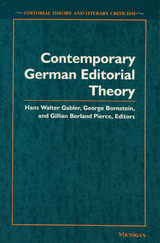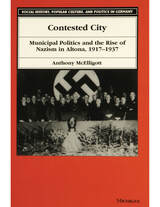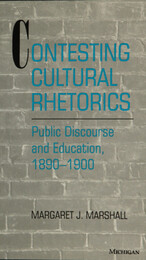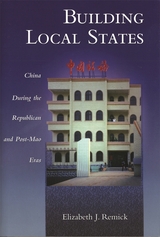
This book examines two eras of Chinese history that have commonly been viewed as periods of state disintegration or retreat. And they were—at the central level. When re-examined at the local level, however, both are revealed as periods of state building. In both the Nanjing decade of Guomindang rule (1927-1937) and the early post-Mao reform era (1980-1992), both national and local factors shaped local state building and created variations in local state structures and practices. This book focuses on one key area of the state, taxation and public finance, to trace the processes of local state building in these two eras. Using the records of local tax and finance offices in the Tianjin area and in Guangdong province, the author maps the process by which these county-level offices grew.
This book highlights variation in local state structures and practices between localities and between the central and local governments. As the author shows, this variation is important because it results in regional differences in state-society relations and affects central state capacity in terms of the local state's ability to implement central state policies as well as its own.
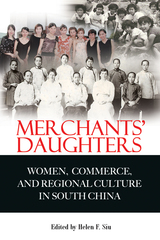
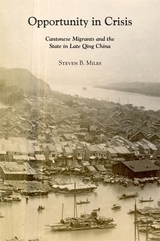
Opportunity in Crisis explores the history of late Qing Cantonese migration along the West River basin during war and reconstruction and the impact of those developments on the relationship between state and local elites on the Guangxi frontier. By situating Cantonese upriver and overseas migration within the same framework, Steven Miles reconceives the late Qing as an age of Cantonese diasporic expansion rather than one of state decline.
The book opens with crisis: rising levels of violence targeting Cantonese riverine commerce, much of it fomented by a geographically mobile Cantonese underclass. Miles then narrates the ensuing history of a Cantonese rebel regime established in Guangxi in the wake of the Taiping uprising. Subsequent chapters discuss opportunities created by this crisis and its aftermath and demonstrate important continuities and changes across the mid-century divide. With the reassertion of Qing control, Cantonese commercial networks in Guangxi expanded dramatically and became an increasingly important source of state revenue. Through its reliance on Hunanese and Cantonese to reconquer Guangxi, the Qing state allowed these diasporic cohorts more flexibility in colonizing the provincial administration and examination apparatus, helping to recreate a single polity on the eve of China’s transition from empire to nation-state.
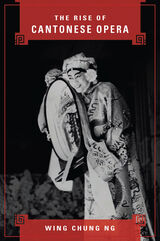
In the early 1900s, however, Cantonese opera began to capture mass audiences in the commercial theaters of Hong Kong and Guangzhou--a transformation that changed it forever. Wing Chung Ng charts Cantonese opera's confrontations with state power, nationalist discourses, and its challenge to the ascendancy of Peking opera as the country's preeminent "national theatre." Mining vivid oral histories and heretofore untapped archival sources, Ng relates how Cantonese opera evolved from a fundamentally rural tradition into urbanized entertainment distinguished by a reliance on capitalization and celebrity performers. He also expands his analysis to the transnational level, showing how waves of Chinese emigration to Southeast Asia and North America further re-shaped Cantonese opera into a vibrant part of the ethnic Chinese social life and cultural landscape in the many corners of a sprawling diaspora.

Taiwan has been depicted as an island facing the incessant threat of forcible unification with the People's Republic of China. Why, then, has Taiwan spent more than three decades pouring capital and talent into China?
In award-winning Rival Partners, Wu Jieh-min follows the development of Taiwanese enterprises in China over twenty-five years and provides fresh insights. The geopolitical shift in Asia beginning in the 1970s and the global restructuring of value chains since the 1980s created strong incentives for Taiwanese entrepreneurs to rush into China despite high political risks and insecure property rights. Taiwanese investment, in conjunction with Hong Kong capital, laid the foundation for the world’s factory to flourish in the southern province of Guangdong, but official Chinese narratives play down Taiwan’s vital contribution. It is hard to imagine the Guangdong model without Taiwanese investment, and, without the Guangdong model, China’s rise could not have occurred. Going beyond the received wisdom of the “China miracle” and “Taiwan factor,” Wu delineates how Taiwanese businesspeople, with the cooperation of local officials, ushered global capitalism into China. By partnering with its political archrival, Taiwan has benefited enormously, while helping to cultivate an economic superpower that increasingly exerts its influence around the world.
READERS
Browse our collection.
PUBLISHERS
See BiblioVault's publisher services.
STUDENT SERVICES
Files for college accessibility offices.
UChicago Accessibility Resources
home | accessibility | search | about | contact us
BiblioVault ® 2001 - 2025
The University of Chicago Press



